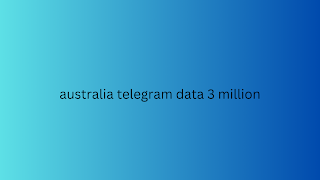Making appointments
Posted: Sat Dec 21, 2024 3:21 am
sharing content
Google tax
What is new is that there will have to be paid for the automatic indexing and reproduction of, and reference to visual content. Taking that image and showing a thumbnail. That will have to be paid for.
Upload filter user generated content
The old text was about automatically determining whether content would be uploaded legally. The problem with that is that we can't teach computers when a quote is a valid quote, or when a meme or parody is allowed (or still infringes). Copyright isn't mathematics.
Also read: Will we soon have a link tax & upload filter?
The new text is fortunately different. Now, no prior review is required, which means that we can continue publishing in principle. Also, computers are no longer allowed to determine whether something is legal or not. It is precisely people who have to do that.
Publishers and creators need to come to agreements with the platforms about compensation for everything that is uploaded. Creators and publishers need to provide licenses for this, so that not every individual user of a platform needs permission from a creator, or has to pay a fee.
If something does go wrong, it will still have to be sorted out afterwards. The platforms are liable for that. So they will have to cooperate.
No more danger for small websites
The old rules were formulated for all australia telegram data 3 million services of the information society. That meant all online service providers and all websites.
Now a new term has been coined. 'Online service providers'. Small businesses with fewer than 50 employees and less than 10 million euros in turnover per year, fall outside the rules.

Of course, the normal rules of copyright still apply.
And now?
Now there is a new bill. This will be discussed with the council, where all heads of government of all member states are represented. In that discussion, the proposed directive could still be changed, but that chance is small.
It is expected that this directive will be adopted before the European elections. After that, an implementation period will begin. A directive is not directly applicable and must first be incorporated into our Dutch law.
Google tax
What is new is that there will have to be paid for the automatic indexing and reproduction of, and reference to visual content. Taking that image and showing a thumbnail. That will have to be paid for.
Upload filter user generated content
The old text was about automatically determining whether content would be uploaded legally. The problem with that is that we can't teach computers when a quote is a valid quote, or when a meme or parody is allowed (or still infringes). Copyright isn't mathematics.
Also read: Will we soon have a link tax & upload filter?
The new text is fortunately different. Now, no prior review is required, which means that we can continue publishing in principle. Also, computers are no longer allowed to determine whether something is legal or not. It is precisely people who have to do that.
Publishers and creators need to come to agreements with the platforms about compensation for everything that is uploaded. Creators and publishers need to provide licenses for this, so that not every individual user of a platform needs permission from a creator, or has to pay a fee.
If something does go wrong, it will still have to be sorted out afterwards. The platforms are liable for that. So they will have to cooperate.
No more danger for small websites
The old rules were formulated for all australia telegram data 3 million services of the information society. That meant all online service providers and all websites.
Now a new term has been coined. 'Online service providers'. Small businesses with fewer than 50 employees and less than 10 million euros in turnover per year, fall outside the rules.

Of course, the normal rules of copyright still apply.
And now?
Now there is a new bill. This will be discussed with the council, where all heads of government of all member states are represented. In that discussion, the proposed directive could still be changed, but that chance is small.
It is expected that this directive will be adopted before the European elections. After that, an implementation period will begin. A directive is not directly applicable and must first be incorporated into our Dutch law.